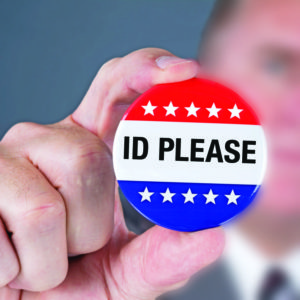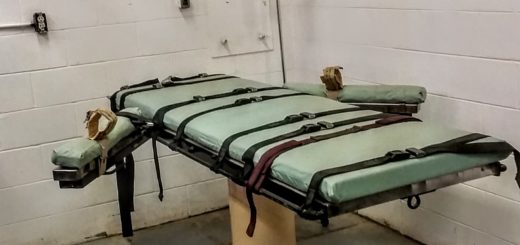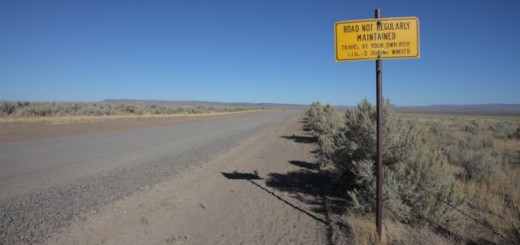Voter ID Laws Only Serve To Disenfranchise Minorities And The Poor
My belief has always been, and more recently has been backed by two important rulings in Texas and North Carolina, that such laws are racially and class motivated to disenfranchise many of the people that tend to vote against the conservative parties responsible for such laws. You only have to look at the very nature of the North Carolina law and the wording of the Court’s decision in striking it down. I’ll get to that in a bit.
My reason for believing that voter ID laws serve no useful purpose are two-fold. First, I learned early on that poor and lower-class citizens have a dogged time trying to obtain valid IDs. I learned this during a week-long stay in New Orleans in the summer of 1985 where, under the guidance of Sister Helen Prejean, my classmates and I learned in-person what people in the welfare system have to go through in order to obtain basic assistance. Proving who you are is job number one and consumes a fair bit of time when you do not have your original birth certificate or do not have the ability to obtain a legal copy. It requires taking valuable time off work or finding someone to sit with your kids – or taking them along – and then sitting for hours in line at various government agencies. All of this is part of the “undo hardship” that opponents of these laws cite. It is very real and overwhelming to many. The burden of obtaining qualifying identification works towards eliminating these people from the voting record.
Secondly, however, and more importantly, the laws claim to solve a problem that very simply does not exist! Justin Levitt is a law professor at Loyola Law School in Los Angeles and presently on leave to the Department of Justice, overseeing voting issues. He has tracked voting fraud to a level of detail unlike any other study done in this country. He has tracked every known case since the year 2000, representing more than 1 billion ballots cast, and has found only 31 cases [as of 2014] of voter fraud in which someone impersonated another in an attempt to vote.
31 out of over a billion. Let that sink in.
This is the type of voter fraud that voter ID laws have been writen to address; so much time and money wasted on a matter that doesn’t happen often enough to affect the outcome of any election anywhere.
Let’s be clear on this matter. Other types of voter fraud do exist and to a much greater frequency. For example, I have a prankish relative WHO SHALL REMAIN UNNAMED that enjoys calling in to conservative talk shows during election cycles to claim how he just finished driving all over New Mexico to cast his vote – one vote for every county in which he owns property. Thus, multiple votes for his choice of governor! Of course he doesn’t really do this, he just loves getting their ire up, but this sort of fraud does happen and frequently (read Levitt’s piece, above). The point is this: Voter ID laws to not address this type of fraud nor do they have any provisions to stop it. The multiple-vote type of fraud is easy to do by anyone and would continue under any of the voter ID laws passed to date.
The voter ID laws that have been passed all have the sole purpose to limit voting to only those people who can prove they are who they claim to be. They often go much beyond this, however, to specifically target minorities and lower-income voters. Let’s look at my claim above that these laws are racially and class motivated. To that we turn to the recently struck-down North Carolina law. The full decision of the 4th Circuit Court of Appeals can be found online.
The findings of the Court include the fact that “Before enacting that law, the legislature requested data on the use, by race, of a number of voting practices. Upon receipt of the race data, the General Assembly enacted legislation that restricted voting and registration in five different ways, all of which disproportionately affected African Americans.” I will now give the breakdown of the five ways voting was restricted among a specific subset of the population.
First, the strict ID requirement was created. Prior to 2013 African American turnout in North Carolina elections was reaching near parity with white voters. The gains in minority voting turnout were substantial.
between 2000 and 2012, when the law provided for the voting mechanisms at issue here and did not require photo ID, African American voter registration swelled by 51.1%. (compared to an increase of 15.8% for white voters). African American turnout similarly surged, from 41.9% in 2000 to 71.5% in 2008 and 68.5% in 2012.
Even more telling, North Carolina emerged as a possible swing state in future elections. By instituting a strict ID requirement the legislature very specifically targeted a population that disproportionately lacked such ID.
The North Carolina law went beyond this step, however, to further target minorities by utilizing the race-based voting information it had obtained.
Second, the new law severely curtailed the amount of time allotted for early voting and – after seeing that the vast majority of Sunday voters were African Americans – eliminated Sunday voting altogether.
As with most states, North Carolina created a means to encourage greater voter participation by extending the time period in which one could vote, either in person or in absentia. This allows people who would otherwise not be able to get out on Tuesday to vote by allowing more days, including weekends, in which to find time.
The racial data provided to the legislators revealed that African Americans disproportionately used early voting in both 2008 and 2012. … In particular, African Americans disproportionately used the first seven days of early voting.
Thus the Assembly cut the number of early voting days from 17 down to 10, cutting out the crucial first 7 days they knew that African Americans would be more likely to vote. Explain to me how this has anything to do with preventing fraud.
Third, the new law eliminated same-day registration. Up until then, North Carolina allowed people who had not previously registered to vote to do so on election day and then cast their vote. The racially profiled data revealed that, once again, African Americans were the greatest percentage of voters who were able to make use of this benefit. Once again, the Assembly took matters under the guise of “voter fraud” and nixed it.
Fourth, the North Carolina Assembly eliminated out-of-precinct voting. Provisional voting allows one to vote in his or her precinct of residence when temporarily residing elsewhere. I was able to vote in Missouri elections while a temporary resident of Wisconsin during graduate school, for example. It is a great benefit. As you can imagine, however, there is a whole class of people for whom constant movement is a part of established life and the struggle for work – the labor class – which consists predominantly of minorities.
Once again, the Assembly found that “of those registered voters who happened to vote provisional ballots outside their resident precincts [in 2004], a disproportionately high percentage were African American.” Again, this benefit was eliminated specifically to reduce voter turnout by the African American community.
Lastly, pre-registration was done away with. A few states (my current home state of New Mexico now among them) allow for 16- and 17-year-olds to pre-register if they will be of voting age come election day. This has had a tremendous effect on increasing voter turnout among the younger population. North Carolina also allowed pre-registration until it was found that “African Americans also disproportionately used preregistration.” They eliminated pre-registration under the new voter ID law.
The law as passed was nothing but a Republican effort to eliminate a huge block of voters who traditionally voted Democratic. It was based on racial profiling and is was one of the most egregious examples of abusive voter ID laws to date.




Recent Comments